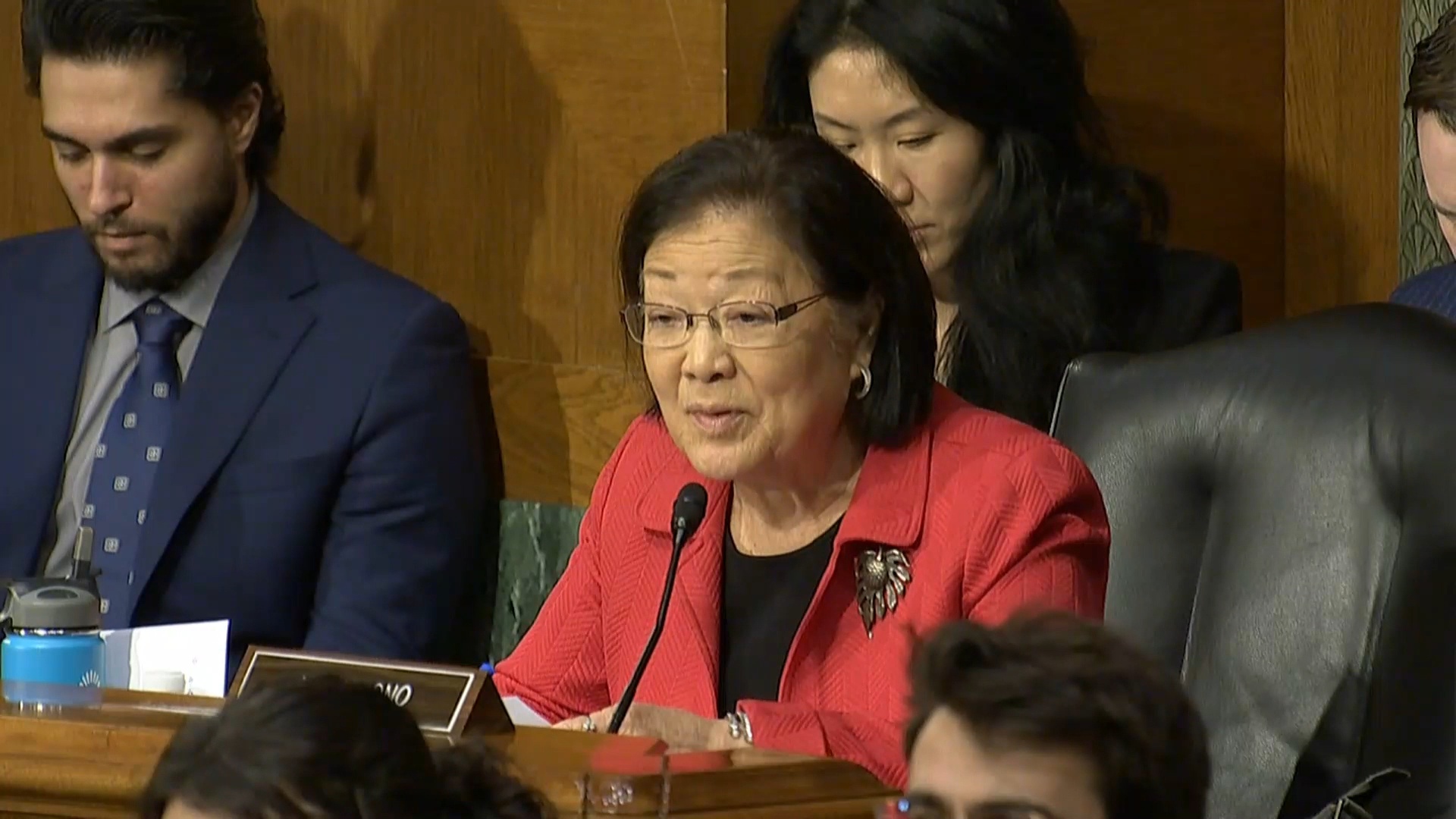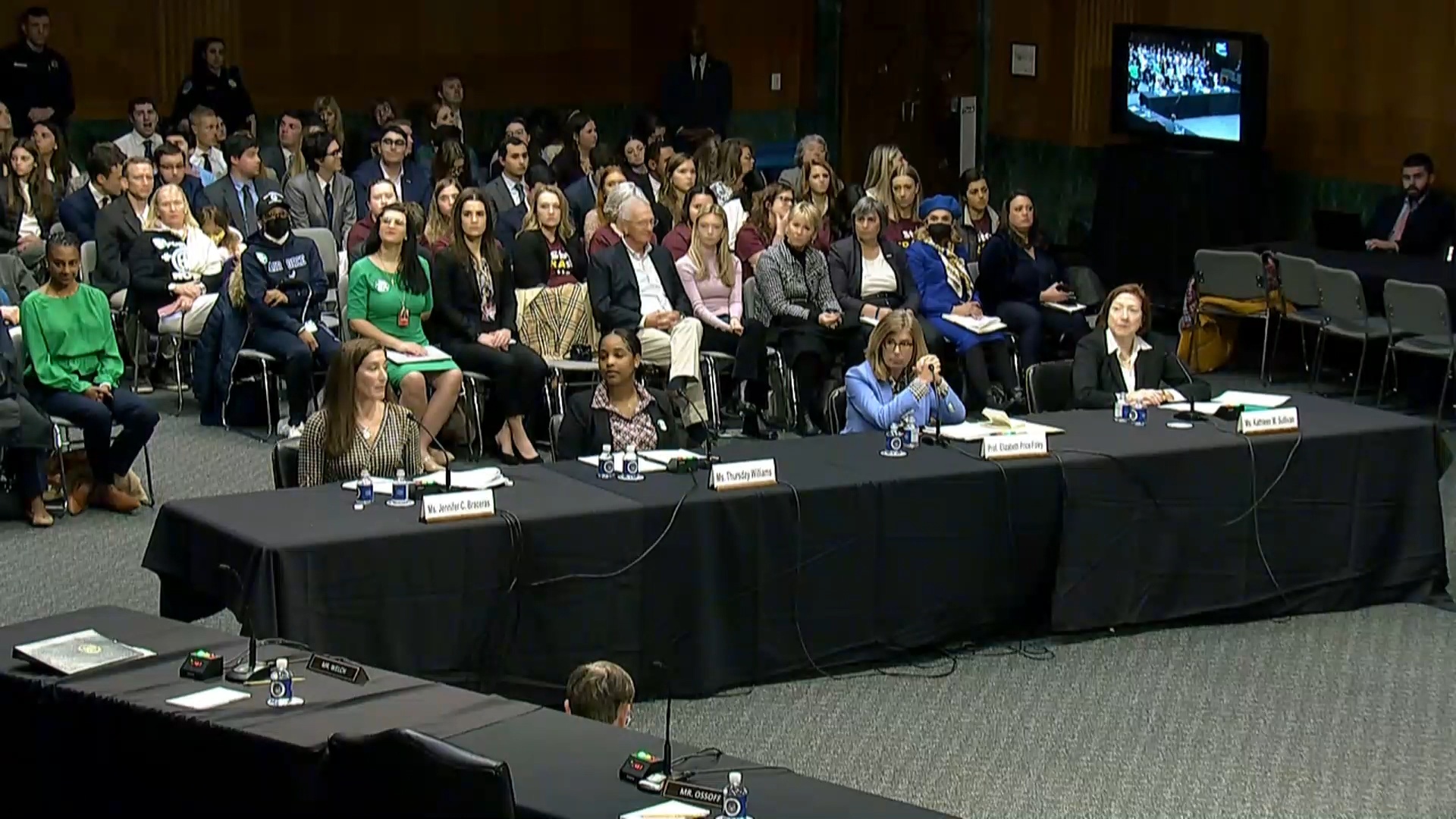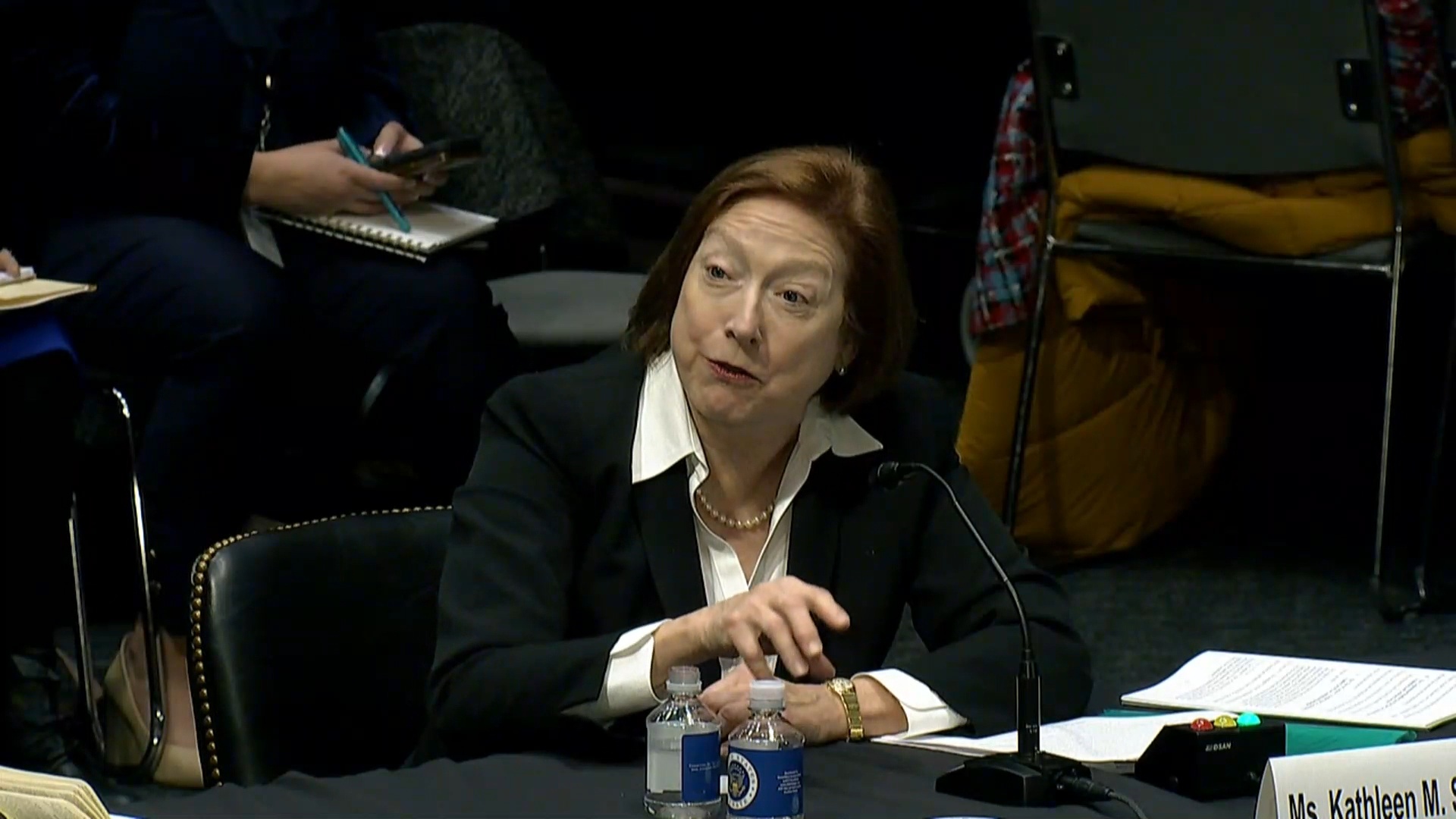(BIVN) – Senator Mazie Hirono (D, Hawaiʻi) is pushing for Congress to recognize the ratification of the Equal Rights Amendment, in order to enshrine gender equality in the U.S. Constitution.
Senator Hirono shared a news release on Tuesday, spotlighting the discussion that took place at a Senate Judiciary Committee hearing. The hearing featured testimony from public officials and legal experts, and highlighted “the importance of ERA ratification in prohibiting sex discrimination and fighting for equal rights for all,” the Senator’s office wrote. The news release added:
Despite the required 38 states having voted to ratify the amendment, ratification has been stalled due to an arbitrary deadline put in place when Congress passed the ERA in 1972. During the hearing, Senator Hirono asked Kathleen Sullivan, Sr. Counsel at Quinn Emanuel and former Dean of Stanford Law School, about how the ERA would replace the current “patchwork” of federal, state, and local laws that address sex discrimination and also provide legal protection against this discrimination.
A transcript of Senator Hirono’s full question line, provided by the office of the Senator:
Sen. Hirono: I’d like to say that, you know yes, the times have changed—the times in which we live where, sadly, violence—gun violence—is rampant; where we see a rise in hate crimes against Asian Americans, Jews, LGBTQ persons; where FBI Director Wray says that domestic terrorism and white supremacy are major concerns. So I’d say yes, the times are changed. And when we live in times where sex discrimination is deemed okay, it’s not okay—this is why I would say we need the Equal Rights Amendment.
Ms. Sullivan, we’ve been hearing some scare stories about how our prisons have got to be—men and women will be put together—but that is not the strict scrutiny test. The strict scrutiny test says the law must achieve a compelling state interest and be narrowly tailored to that interest. So it’s not as though the flood gates open and all of these terrible things—to some, terrible things—will happen. Can you talk a little bit more about how the Equal Rights Amendment, once in the Constitution, will lead to strict scrutiny?
Ms. Sullivan: Thank you very much, Senator, and I just want to reiterate the points so eloquently made earlier today by several senators, including the Chairman—that the Equal Rights Amendment is about everyone. It’s about your wives, your daughters, your granddaughters, your mothers, your aunts, your cousins—it’s about all women. And why would you be against an Equal Rights Amendment, which is part of the Constitution, as mentioned earlier. Of all the other democracies with written constitutions, why would we want to be allied with nations that don’t have equality for women? That don’t let girls go to school with boys? That don’t let women appear outside with their hair uncovered? Why would we want to filibuster something that’s about fundamental equal rights for all people?
And Senator Lee, your father was a great constitutional lawyer who I admired so greatly, but Senator Hirono is absolutely right—this amendment is not about the level of scrutiny. This is about a fundamental guarantee—in the majestic words of the Constitution—of equality. And the courts will work it out later, in spirited debates between lawyers in courts, about what the standard of scrutiny should be. And this amendment is not saying women and men have to be treated the same when they’re different, it’s saying all people have to be treated equally. And there is plenty of room in the majestic guarantee of equality to recognize times when women have to get protections because only women can get pregnant; that women have to have rectification of past discrimination—all those benefits for women that Senator Hyde-Smith was worried would disappear, I think that’s a false picture and this parade of horribles is very misleading.
All this amendment will do is make sure we can’t have a court roll the clock back to 1868 or 1874 under the equal protection clause by interpreting it historically. And as Senator Klobuchar said, guaranteeing equality in its broad, vague terms that will be worked out later in specific cases. So, Senator, no—it is scare tactics that this body should ignore to suggest that anything is fixed about how the ERA will be interpreted. I believe it will be interpreted in ways that empower women and girls into the future, as Ms. Williams so eloquently suggested it would do, but I don’t think you should listen to these parade of horribles you’ve heard today.
Sen. Hirono: I agree with you. And, by the way, we’ve heard Ruth Bader Ginsburg mentioned a number of times, but it was very clear that she thought that the ERA should be part of the Constitution. And whatever statements she was making was in the context of that she thought it should be in the Constitution. Here is a woman who spent her entire adult life fighting for equal rights for everyone and in spite of that, she didn’t think we had gotten it done. And she thought that the ERA should be part of our Constitution.
Also, Ms. Sullivan, can you explain very briefly how the ERA—by explicitly prohibiting against sex discrimination—would supplant the current patchwork of federal, state, and local laws that currently address sex discrimination and provide a bedrock of legal protection against it and why it’s important?
Ms. Sullivan: Senator, the ERA would nationalize protections against sex discrimination that already exist in many of our statutes at the federal level and in many of our state constitutions. That’s important because of federalism—we believe that people have the right to move between states in our country, and that means that your rights won’t disappear when you cross a state border from Senator Blumenthal’s Connecticut to another state. It simply guarantees for all—all women, nationwide—what is already recognized in the patchwork of other laws; that’s a good thing.




by Big Island Video News7:42 pm
on at
STORY SUMMARY
WASHINGTON D.C. - Senator Hirono says the ratification of the Equal Rights Amendment is important in prohibiting sex discrimination and fighting for equal rights for all.